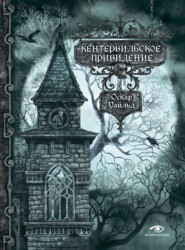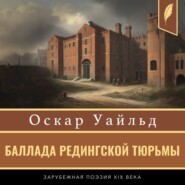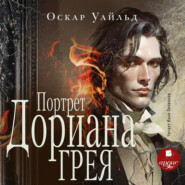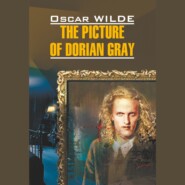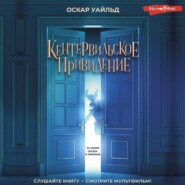По всем вопросам обращайтесь на: info@litportal.ru
(©) 2003-2024.
✖
Miscellanies
Настройки чтения
Размер шрифта
Высота строк
Поля
Be warned in time, James; and remain, as I do, incomprehensible. To be great is to be misunderstood. —Tout à vous, OSCAR WILDE.
III
(World, November 24,1886.)
ATLAS, – This is very sad! With our James vulgarity begins at home, and should be allowed to stay there. —À vous, OSCAR WILDE.
REPLY TO WHISTLER
(Truth, January 9, 1890.)
To the Editor of Truth.
SIR, – I can hardly imagine that the public is in the very smallest degree interested in the shrill shrieks of ‘Plagiarism’ that proceed from time to time out of the lips of silly vanity or incompetent mediocrity.
However, as Mr. James Whistler has had the impertinence to attack me with both venom and vulgarity in your columns, I hope you will allow me to state that the assertions contained in his letter are as deliberately untrue as they are deliberately offensive.
The definition of a disciple as one who has the courage of the opinions of his master is really too old even for Mr. Whistler to be allowed to claim it, and as for borrowing Mr. Whistler’s ideas about art, the only thoroughly original ideas I have ever heard him express have had reference to his own superiority as a painter over painters greater than himself.
It is a trouble for any gentleman to have to notice the lucubrations of so ill-bred and ignorant a person as Mr. Whistler, but your publication of his insolent letter left me no option in the matter. – I remain, sir, faithfully yours, OSCAR WILDE.
16 TITE STREET, CHELSEA, S. W.
LETTERS ON DORIAN GRAY
I. MR. WILDE’S BAD CASE
(St. James’s Gazette, June 26, 1890.)
To the Editor of the St. James’s Gazette.
SIR, – I have read your criticism of my story, The Picture of Dorian Gray; and I need hardly say that I do not propose to discuss its merits or demerits, its personalities or its lack of personality. England is a free country, and ordinary English criticism is perfectly free and easy. Besides, I must admit that, either from temperament or taste, or from both, I am quite incapable of understanding how any work of art can be criticised from a moral standpoint. The sphere of art and the sphere of ethics are absolutely distinct and separate; and it is to the confusion between the two that we owe the appearance of Mrs. Grundy, that amusing old lady who represents the only original form of humour that the middle classes of this country have been able to produce.
What I do object to most strongly is that you should have placarded the town with posters on which was printed in large letters: —
MR. OSCAR WILDE’S
LATEST ADVERTISEMENT:
A BAD CASE.
Whether the expression ‘A Bad Case’ refers to my book or to the present position of the Government, I cannot tell. What was silly and unnecessary was the use of the term ‘advertisement.’
I think I may say without vanity – though I do not wish to appear to run vanity down – that of all men in England I am the one who requires least advertisement. I am tired to death of being advertised – I feel no thrill when I see my name in a paper. The chronicle does not interest me any more. I wrote this book entirely for my own pleasure, and it gave me very great pleasure to write it. Whether it becomes popular or not is a matter of absolute indifference to me. I am afraid, Sir, that the real advertisement is your cleverly written article. The English public, as a mass, takes no interest in a work of art until it is told that the work in question is immoral, and your réclame will, I have no doubt, largely increase the sale of the magazine; in which sale I may mention with some regret, I have no pecuniary interest. – I remain, Sir, your obedient servant, OSCAR WILDE.
16 TITE STREET, CHELSEA, June 25.
II. MR. OSCAR WILDE AGAIN
(St. James’s Gazette, June 27, 1890.)
SIR, – In your issue of today you state that my brief letter published in your columns is the ‘best reply’ I can make to your article upon Dorian Gray. This is not so. I do not propose to discuss fully the matter here, but I feel bound to say that your article contains the most unjustifiable attack that has been made upon any man of letters for many years.
The writer of it, who is quite incapable of concealing his personal malice, and so in some measure destroys the effect he wishes to produce, seems not to have the slightest idea of the temper in which a work of art should be approached. To say that such a book as mine should be ‘chucked into the fire’ is silly. That is what one does with newspapers.
Of the value of pseudo-ethical criticism in dealing with artistic work I have spoken already. But as your writer has ventured into the perilous grounds of literary criticism I ask you to allow me, in fairness not merely to myself but to all men to whom literature is a fine art, to say a few words about his critical method.
He begins by assailing me with much ridiculous virulence because the chief personages in my story are puppies. They are puppies. Does he think that literature went to the dogs when Thackeray wrote about puppydom? I think that puppies are extremely interesting from an artistic as well as from a psychological point of view.
They seem to me to be certainly far more interesting than prigs; and I am of opinion that Lord Henry Wotton is an excellent corrective of the tedious ideal shadowed forth in the semi-theological novels of our age.
He then makes vague and fearful insinuations about my grammar and my erudition. Now, as regards grammar, I hold that, in prose at any rate, correctness should always be subordinate to artistic effect and musical cadence; and any peculiarities of syntax that may occur in Dorian Gray are deliberately intended, and are introduced to show the value of the artistic theory in question. Your writer gives no instance of any such peculiarity. This I regret, because I do not think that any such instances occur.
As regards erudition, it is always difficult, even for the most modest of us, to remember that other people do not know quite as much as one does one’s self. I myself frankly admit I cannot imagine how a casual reference to Suetonius and Petronius Arbiter can be construed into evidence of a desire to impress an unoffending and ill-educated public by an assumption of superior knowledge. I should fancy that the most ordinary of scholars is perfectly well acquainted with the Lives of the Cæsars and with the Satyricon.
The Lives of the Cæsars, at any rate, forms part of the curriculum at Oxford for those who take the Honour School of Literæ Humaniores; and as for the Satyricon it is popular even among pass-men, though I suppose they are obliged to read it in translations.
The writer of the article then suggests that I, in common with that great and noble artist Count Tolstoi, take pleasure in a subject because it is dangerous. About such a suggestion there is this to be said. Romantic art deals with the exception and with the individual. Good people, belonging as they do to the normal, and so, commonplace, type, are artistically uninteresting.
Bad people are, from the point of view of art, fascinating studies. They represent colour, variety and strangeness. Good people exasperate one’s reason; bad people stir one’s imagination. Your critic, if I must give him so honourable a title, states that the people in my story have no counterpart in life; that they are, to use his vigorous if somewhat vulgar phrase, ‘mere catchpenny revelations of the non-existent.’ Quite so.
If they existed they would not be worth writing about. The function of the artist is to invent, not to chronicle. There are no such people. If there were I would not write about them. Life by its realism is always spoiling the subject-matter of art.
The superior pleasure in literature is to realise the non-existent.
And finally, let me say this. You have reproduced, in a journalistic form, the comedy of Much Ado about Nothing and have, of course, spoilt it in your reproduction.
The poor public, hearing, from an authority so high as your own, that this is a wicked book that should be coerced and suppressed by a Tory Government, will, no doubt, rush to it and read it. But, alas! they will find that it is a story with a moral. And the moral is this: All excess, as well as all renunciation, brings its own punishment.
The painter, Basil Hallward, worshipping physical beauty far too much, as most painters do, dies by the hand of one in whose soul he has created a monstrous and absurd vanity. Dorian Gray, having led a life of mere sensation and pleasure, tries to kill conscience, and at that moment kills himself. Lord Henry Wotton seeks to be merely the spectator of life. He finds that those who reject the battle are more deeply wounded than those who take part in it.
Yes, there is a terrible moral in Dorian Gray– a moral which the prurient will not be able to find in it, but it will be revealed to all whose minds are healthy. Is this an artistic error? I fear it is. It is the only error in the book. – I remain, Sir, your obedient servant, OSCAR WILDE.
16 TITE STREET, CHELSEA, June 26.
III. MR. OSCAR WILDE’S DEFENCE
(St. James’s Gazette, June 28, 1890.)
To the Editor of the St. James’s Gazette.
SIR, – As you still keep up, though in a somewhat milder form than before, your attacks on me and my book, you not only confer on me the right, but you impose upon me the duty of reply.
You state, in your issue of today, that I misrepresented you when I said that you suggested that a book so wicked as mine should be ‘suppressed and coerced by a Tory Government.’ Now, you did not propose this, but you did suggest it. When you declare that you do not know whether or not the Government will take action about my book, and remark that the authors of books much less wicked have been proceeded against in law, the suggestion is quite obvious.
In your complaint of misrepresentation you seem to me, Sir, to have been not quite candid.
However, as far as I am concerned, this suggestion is of no importance. What is of importance is that the editor of a paper like yours should appear to countenance the monstrous theory that the Government of a country should exercise a censorship over imaginative literature. This is a theory against which I, and all men of letters of my acquaintance, protest most strongly; and any critic who admits the reasonableness of such a theory shows at once that he is quite incapable of understanding what literature is, and what are the rights that literature possesses. A Government might just as well try to teach painters how to paint, or sculptors how to model, as attempt to interfere with the style, treatment and subject-matter of the literary artist, and no writer, however eminent or obscure, should ever give his sanction to a theory that would degrade literature far more than any didactic or so-called immoral book could possibly do.
III
(World, November 24,1886.)
ATLAS, – This is very sad! With our James vulgarity begins at home, and should be allowed to stay there. —À vous, OSCAR WILDE.
REPLY TO WHISTLER
(Truth, January 9, 1890.)
To the Editor of Truth.
SIR, – I can hardly imagine that the public is in the very smallest degree interested in the shrill shrieks of ‘Plagiarism’ that proceed from time to time out of the lips of silly vanity or incompetent mediocrity.
However, as Mr. James Whistler has had the impertinence to attack me with both venom and vulgarity in your columns, I hope you will allow me to state that the assertions contained in his letter are as deliberately untrue as they are deliberately offensive.
The definition of a disciple as one who has the courage of the opinions of his master is really too old even for Mr. Whistler to be allowed to claim it, and as for borrowing Mr. Whistler’s ideas about art, the only thoroughly original ideas I have ever heard him express have had reference to his own superiority as a painter over painters greater than himself.
It is a trouble for any gentleman to have to notice the lucubrations of so ill-bred and ignorant a person as Mr. Whistler, but your publication of his insolent letter left me no option in the matter. – I remain, sir, faithfully yours, OSCAR WILDE.
16 TITE STREET, CHELSEA, S. W.
LETTERS ON DORIAN GRAY
I. MR. WILDE’S BAD CASE
(St. James’s Gazette, June 26, 1890.)
To the Editor of the St. James’s Gazette.
SIR, – I have read your criticism of my story, The Picture of Dorian Gray; and I need hardly say that I do not propose to discuss its merits or demerits, its personalities or its lack of personality. England is a free country, and ordinary English criticism is perfectly free and easy. Besides, I must admit that, either from temperament or taste, or from both, I am quite incapable of understanding how any work of art can be criticised from a moral standpoint. The sphere of art and the sphere of ethics are absolutely distinct and separate; and it is to the confusion between the two that we owe the appearance of Mrs. Grundy, that amusing old lady who represents the only original form of humour that the middle classes of this country have been able to produce.
What I do object to most strongly is that you should have placarded the town with posters on which was printed in large letters: —
MR. OSCAR WILDE’S
LATEST ADVERTISEMENT:
A BAD CASE.
Whether the expression ‘A Bad Case’ refers to my book or to the present position of the Government, I cannot tell. What was silly and unnecessary was the use of the term ‘advertisement.’
I think I may say without vanity – though I do not wish to appear to run vanity down – that of all men in England I am the one who requires least advertisement. I am tired to death of being advertised – I feel no thrill when I see my name in a paper. The chronicle does not interest me any more. I wrote this book entirely for my own pleasure, and it gave me very great pleasure to write it. Whether it becomes popular or not is a matter of absolute indifference to me. I am afraid, Sir, that the real advertisement is your cleverly written article. The English public, as a mass, takes no interest in a work of art until it is told that the work in question is immoral, and your réclame will, I have no doubt, largely increase the sale of the magazine; in which sale I may mention with some regret, I have no pecuniary interest. – I remain, Sir, your obedient servant, OSCAR WILDE.
16 TITE STREET, CHELSEA, June 25.
II. MR. OSCAR WILDE AGAIN
(St. James’s Gazette, June 27, 1890.)
SIR, – In your issue of today you state that my brief letter published in your columns is the ‘best reply’ I can make to your article upon Dorian Gray. This is not so. I do not propose to discuss fully the matter here, but I feel bound to say that your article contains the most unjustifiable attack that has been made upon any man of letters for many years.
The writer of it, who is quite incapable of concealing his personal malice, and so in some measure destroys the effect he wishes to produce, seems not to have the slightest idea of the temper in which a work of art should be approached. To say that such a book as mine should be ‘chucked into the fire’ is silly. That is what one does with newspapers.
Of the value of pseudo-ethical criticism in dealing with artistic work I have spoken already. But as your writer has ventured into the perilous grounds of literary criticism I ask you to allow me, in fairness not merely to myself but to all men to whom literature is a fine art, to say a few words about his critical method.
He begins by assailing me with much ridiculous virulence because the chief personages in my story are puppies. They are puppies. Does he think that literature went to the dogs when Thackeray wrote about puppydom? I think that puppies are extremely interesting from an artistic as well as from a psychological point of view.
They seem to me to be certainly far more interesting than prigs; and I am of opinion that Lord Henry Wotton is an excellent corrective of the tedious ideal shadowed forth in the semi-theological novels of our age.
He then makes vague and fearful insinuations about my grammar and my erudition. Now, as regards grammar, I hold that, in prose at any rate, correctness should always be subordinate to artistic effect and musical cadence; and any peculiarities of syntax that may occur in Dorian Gray are deliberately intended, and are introduced to show the value of the artistic theory in question. Your writer gives no instance of any such peculiarity. This I regret, because I do not think that any such instances occur.
As regards erudition, it is always difficult, even for the most modest of us, to remember that other people do not know quite as much as one does one’s self. I myself frankly admit I cannot imagine how a casual reference to Suetonius and Petronius Arbiter can be construed into evidence of a desire to impress an unoffending and ill-educated public by an assumption of superior knowledge. I should fancy that the most ordinary of scholars is perfectly well acquainted with the Lives of the Cæsars and with the Satyricon.
The Lives of the Cæsars, at any rate, forms part of the curriculum at Oxford for those who take the Honour School of Literæ Humaniores; and as for the Satyricon it is popular even among pass-men, though I suppose they are obliged to read it in translations.
The writer of the article then suggests that I, in common with that great and noble artist Count Tolstoi, take pleasure in a subject because it is dangerous. About such a suggestion there is this to be said. Romantic art deals with the exception and with the individual. Good people, belonging as they do to the normal, and so, commonplace, type, are artistically uninteresting.
Bad people are, from the point of view of art, fascinating studies. They represent colour, variety and strangeness. Good people exasperate one’s reason; bad people stir one’s imagination. Your critic, if I must give him so honourable a title, states that the people in my story have no counterpart in life; that they are, to use his vigorous if somewhat vulgar phrase, ‘mere catchpenny revelations of the non-existent.’ Quite so.
If they existed they would not be worth writing about. The function of the artist is to invent, not to chronicle. There are no such people. If there were I would not write about them. Life by its realism is always spoiling the subject-matter of art.
The superior pleasure in literature is to realise the non-existent.
And finally, let me say this. You have reproduced, in a journalistic form, the comedy of Much Ado about Nothing and have, of course, spoilt it in your reproduction.
The poor public, hearing, from an authority so high as your own, that this is a wicked book that should be coerced and suppressed by a Tory Government, will, no doubt, rush to it and read it. But, alas! they will find that it is a story with a moral. And the moral is this: All excess, as well as all renunciation, brings its own punishment.
The painter, Basil Hallward, worshipping physical beauty far too much, as most painters do, dies by the hand of one in whose soul he has created a monstrous and absurd vanity. Dorian Gray, having led a life of mere sensation and pleasure, tries to kill conscience, and at that moment kills himself. Lord Henry Wotton seeks to be merely the spectator of life. He finds that those who reject the battle are more deeply wounded than those who take part in it.
Yes, there is a terrible moral in Dorian Gray– a moral which the prurient will not be able to find in it, but it will be revealed to all whose minds are healthy. Is this an artistic error? I fear it is. It is the only error in the book. – I remain, Sir, your obedient servant, OSCAR WILDE.
16 TITE STREET, CHELSEA, June 26.
III. MR. OSCAR WILDE’S DEFENCE
(St. James’s Gazette, June 28, 1890.)
To the Editor of the St. James’s Gazette.
SIR, – As you still keep up, though in a somewhat milder form than before, your attacks on me and my book, you not only confer on me the right, but you impose upon me the duty of reply.
You state, in your issue of today, that I misrepresented you when I said that you suggested that a book so wicked as mine should be ‘suppressed and coerced by a Tory Government.’ Now, you did not propose this, but you did suggest it. When you declare that you do not know whether or not the Government will take action about my book, and remark that the authors of books much less wicked have been proceeded against in law, the suggestion is quite obvious.
In your complaint of misrepresentation you seem to me, Sir, to have been not quite candid.
However, as far as I am concerned, this suggestion is of no importance. What is of importance is that the editor of a paper like yours should appear to countenance the monstrous theory that the Government of a country should exercise a censorship over imaginative literature. This is a theory against which I, and all men of letters of my acquaintance, protest most strongly; and any critic who admits the reasonableness of such a theory shows at once that he is quite incapable of understanding what literature is, and what are the rights that literature possesses. A Government might just as well try to teach painters how to paint, or sculptors how to model, as attempt to interfere with the style, treatment and subject-matter of the literary artist, and no writer, however eminent or obscure, should ever give his sanction to a theory that would degrade literature far more than any didactic or so-called immoral book could possibly do.










